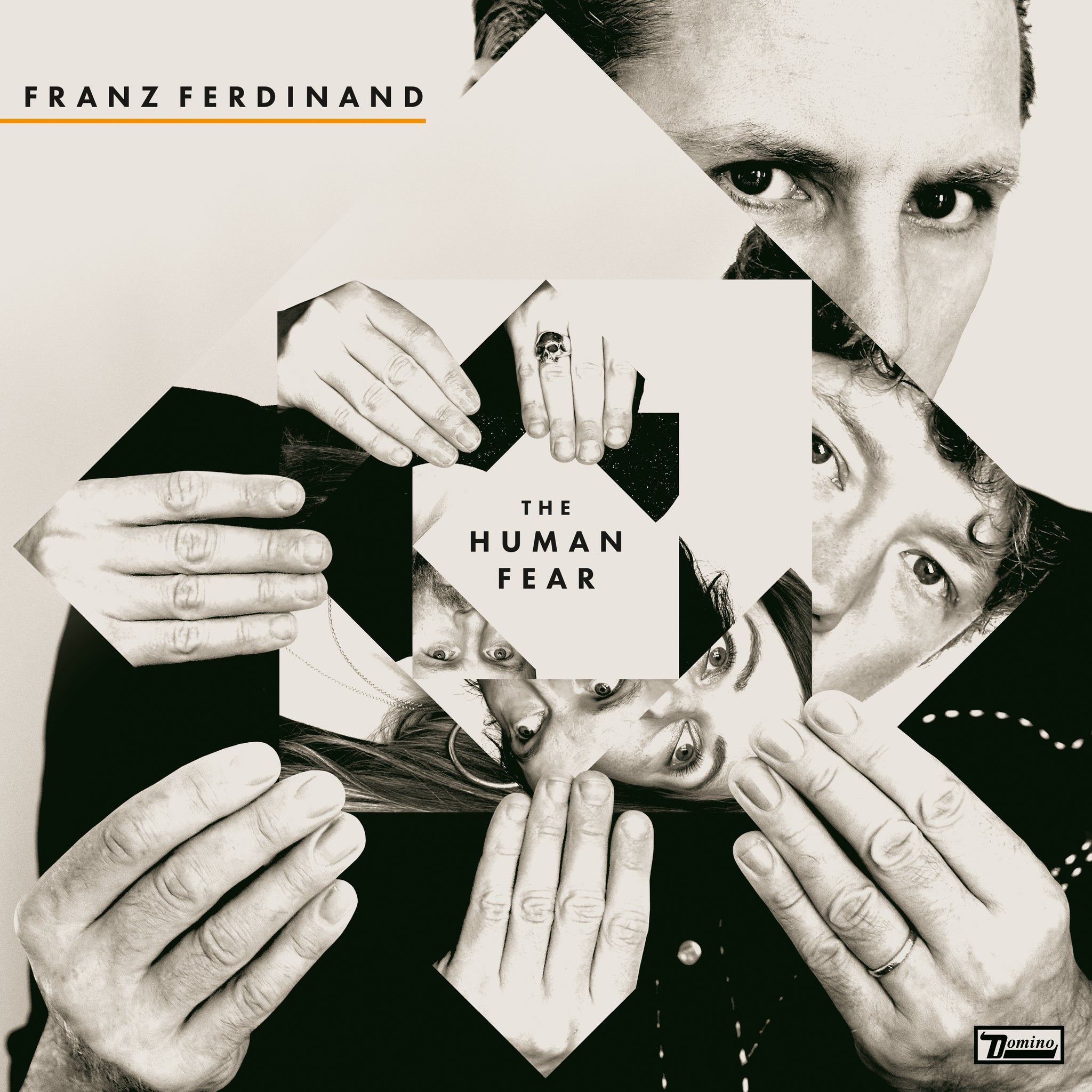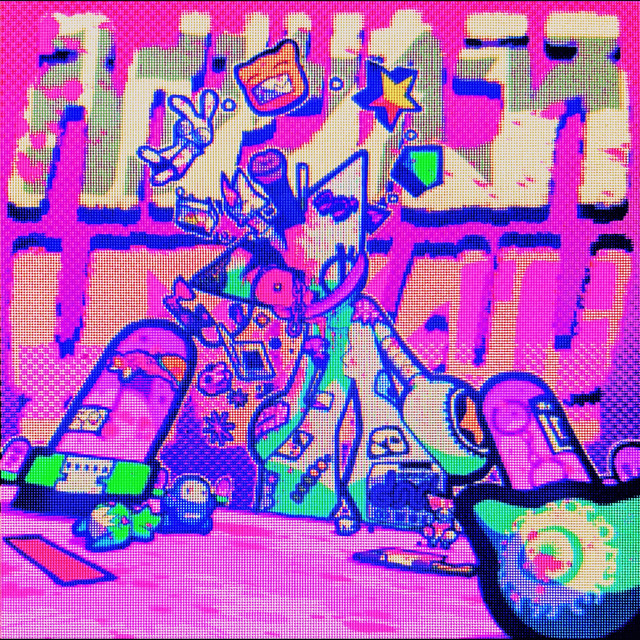
Franz Ferdinand transitioned gracefully to legacy act. That they were a retro band from the start, intoxicated by new wave danciness and Britpop optimism, surely helped. Now in its third decade, the Glasgow quintet released a greatest hits album in 2022 but resisted the lure of the 20th-anniversary tour last year when 2004’s indelible debut hit that milestone, prioritizing new material in setlists instead. They’ve never released an irredeemably bad album, never chased trends or hollow rebrands, even if in recent years their studio output has slowed to a trickle.
That, too, is a perk of legacy status: You don’t have to release an album every two years. These Scots don’t rush: The time elapsed since their fifth album, 2018’s peppy, disco-colored Always Ascending, is longer than the Great War sparked by the assassination of the Archduke. Now, at long last, comes a new album that sounds… a whole lot like Always Ascending.
Breezy and unflappably upbeat, these tunes summon the vintage swagger and suave humor of Franz Ferdinand’s early records but little of the punkish exhilaration. Alex Kapranos is older and wiser: “Did you ever get the feeling that there’s something come undone?” he croons as “Audacious” kicks into pleasantly ruffled gear, still managing to marshall some anti-defeatist optimism for the McCartney-esque pop of the chorus (“Don’t stop feeling audacious/There’s no one to save us/So just carry on”). “Build It Up,” one of several songs co-written by keyboardist Julian Corrie, is funky and light on its feet, with a chorus that packs enough momentum for festival stages.
A loose concept gives The Human Fear some shape and purpose. Kapranos describes it as “a bunch of songs searching for the thrill of being human via fears.” Not that there’s much soul-baring here; like his Britpop forebears, Kapranos specializes in character sketches and sardonic vignettes instead. On “The Doctor,” he cheekily plays a hospital patient who refuses to go home: “I have nurses I can talk to and thermometers to hold.” “Bar Lonely” offers vignettes from a sad-sack watering hole where “everybody here is alone, just like you,” though handclaps and hooky bah-bah-bah-bahs keep it light.
Still, for an album ostensibly inspired by terror and thrill, The Human Fear plays it pretty safe. The songs are amiable and easygoing, with plenty of hooks but few big swings; there’s not much to trigger an adrenaline shock. Only on “The Birds,” a spiky, post-punk curveball of a closer, does the band wig out and summon some real anxiety. Otherwise, when Franz Ferdinand stray from their comfort zone, the results are embarrassing (the electroclash misfire “Hooked,” outfitted with an EDM drop) or just nearly weird enough to entertain (the klezmer-inspired curio “Black Eyelashes”).
“They’re poised to be the next Duran Duran or the next Pulp,” a critic for this website wrote 21 years ago, reviewing Franz Ferdinand’s self-titled. “Or they could be the next Menswear.” Instead, Franz Ferdinand plowed a comfortable path somewhere in between; respected but not revered, they deliver an album every half-decade or so to remind you why you loved them in the early aughts. The Human Fear isn’t provocative enough to revitalize their reputation, but it certainly won’t do it any harm.
All products featured on Pitchfork are independently selected by our editors. However, when you buy something through our retail links, we may earn an affiliate commission.

To hit play on femtanyl’s “KATAMARI” is to be sucked into a wormhole of mad breaks and robotic cries that suggest a malfunctioning Five Nights at Freddy’s animatronic. “Bruises on my neck/Just a doll of flesh/You'll find my smoking body hung in wires overhead,” the voice whines, glitching like a computer with malware in a 1996 sci-fi movie. This is a feral simulacra of old-skool rave music, made by a producer born after the scene’s golden age ended and who likely grew up tapped into already diluted tributes to hardcore electronica, like Machine Girl. Literally feral: Though not a furry herself, femtanyl’s fanbase is full of them; she’s collaborated with furry artists like MAILPUP, and her covers feature a gleefully disfigured cat-like creature—knives in the forehead and cheek; pancake flat from a spike ball—named Token.
The on-the-bloodied-nose mayhem of the music—rife with cannibalism references and overclocked synths—has made the 21-year-old equally beloved and reviled. Haters say it’s grating noise, but that’s just made her fans even more steadfast, giving “femtanyl truther” the status of a marginalized identity. “These days it may be easier to come out as gay than to come out as a femtanyl fan,” as one popular meme jokes. But it’s not that serious. Rising above the vitriol alongside a growing wave of breaks-heavy rave producers like Vertigoaway and DJ Kuroneko, femtanyl may finally be the one to bring digital hardcore to the masses.
REACTOR is femtanyl’s second EP, the follow-up to last year’s CHASER, a relentless hamster wheel of energy. Nearly every beat revolves around chattering percussion, peaky synths, and stabs straight out of 1992. The concept of “negative space” has been annihilated; garbled cries of people who sound off their nuts inundate the mix alongside atmospheric samples like baleful monologues from The Exorcist III. Almost every song feels like it could soundtrack a Ridge Racer level; the treble sounds made for aliens who can only hear at high frequencies.
In the tape’s least dynamic and most forgettable moments, the formulaic hardcore rave clutter has the same placeless, amorphous essence that Nintendo gives its Mario bossa nova tunes. But REACTOR mostly intoxicates, thanks to the bright, infectious synth loops with hooks as sharp as pop jingles. They irradiate and clash with the dark witches’ coven of unsettling vocal styles lurking beneath, from metal howls to echoing warbles. The jittery sandstorm of “WEIGHTLESS” practically drowns femtanyl’s screams. It took me numerous replays to realize this music wasn’t a happy-go-lucky joyride. It’s more like hardgore breaks.
This is a dank realm where “spiders shoot out of guts,” puke spills across the backs of cars, shotguns paint the shower, and thumbs press nerves deep inside the narrator’s eyes. It’s Atari Teenage Riot for zoomers hooked on creepypastas, fan-fic, and the FPS game Ultrakill. femtanyl has spoken out about drug and mental health issues she’s been through, and it’s easy to read the ferocity as a cathartic outpouring. There’s also a joyous defiance to tunes like “IT’S TIME,” which comes alive when the punk maelstrom of drums and shrieks slows down and a bizarrely angelic hum drifts in. Danny Brown offers a sweet reprieve from the havoc on “M3 N MINE,” bobbing between the beat like he’s moshing on a unicycle.
REACTOR’s sleeper highlight is “ATTACKING VERTICAL,” which originally wasn’t supposed to be a song—femtanyl posted it on Twitter as a scrapped demo, but then came back and dropped it. On a tape of nonstop tumult, it’s surprisingly soothing, a dreamy deep-water drift. The vocals are so low and choppy—imitating the robo-drone of a text-to-speech machine—they’re like mutant percussion. It feels almost like a failed time-travel exercise, or an unsuccessful track from the ’90s rave era—someone from the outside trying to make an anthem but not quite pulling it off, which is exactly femtanyl’s position. The imperfection is part of the allure, like a raw file you’d find on a disc at a DIY hacker convention. It’s charming anemoia factor feels perfectly in line with femtanyl’s greater project, making you yearn to experience a time you never lived in.